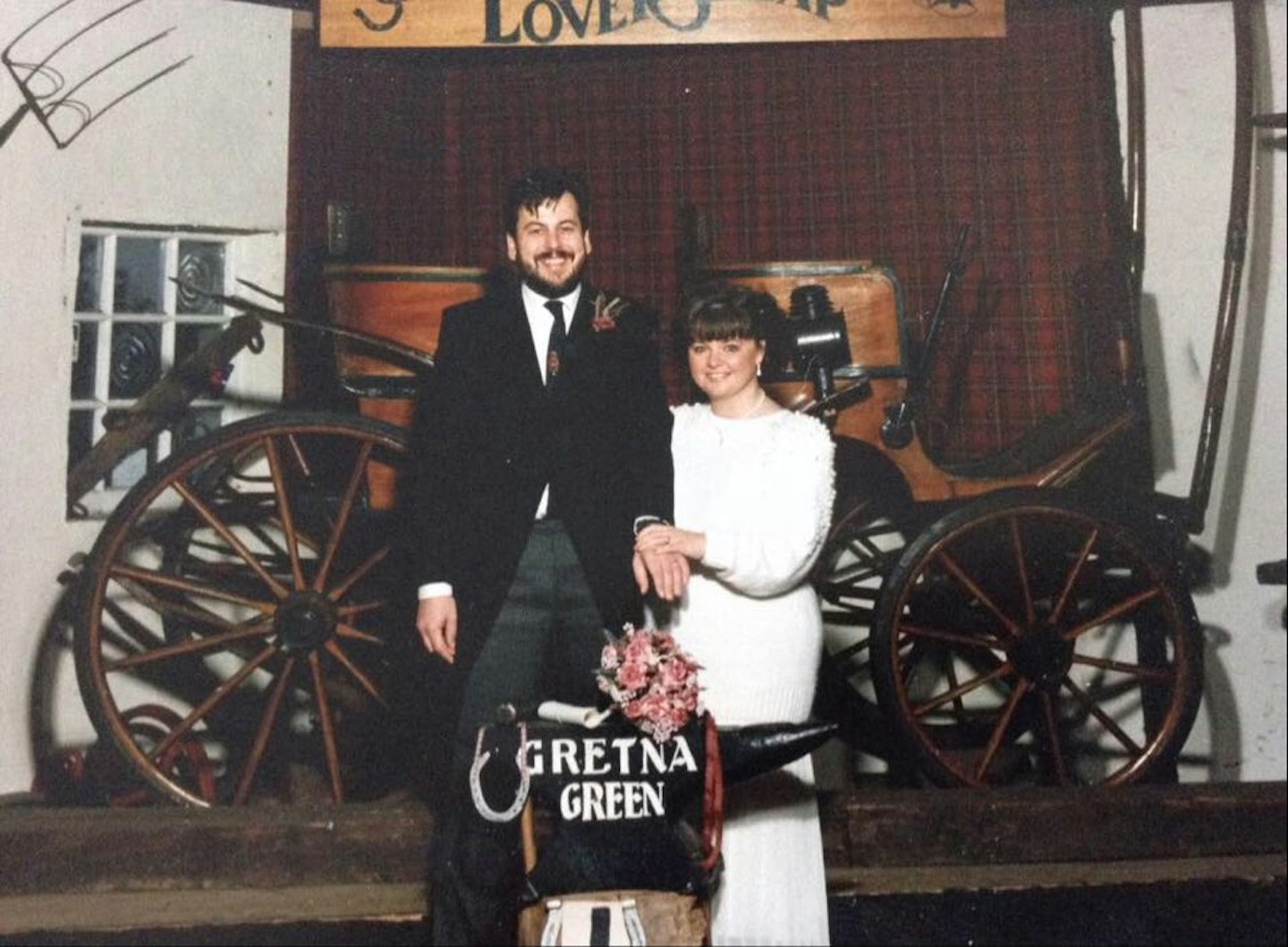After I lost my husband, I was looking for a purpose. But my calling came in an unexpected way. By Ruth Grover, 68

As I stared at the screen, I tried to make sense of the message I’d just received. But I couldn’t.
I thought: Why on earth would someone like that be contacting me?
A few days earlier, I’d created my very first Facebook account to keep in touch with friends and family abroad.
I’d written my status as widow.
That’s who I am now, I’d thought, blinking back tears.
Two years earlier, I’d lost my beloved husband Jeff to skin cancer. We’d only just retired and, still in our 50s, we had been looking forward to holidays and taking it easy.
But, within a matter of months, I lost my mum Jean and then Jeff.
And while my sons Adam and Brent had been great, I’d felt overwhelmed by grief.
I didn’t expect or want to find love again. But now, out of the blue, I’d received a strange Facebook message from a general in the US Army.
Hello beautiful, it read. I admired your profile and would like to get to know you better.
Intrigued, I replied with a simple hello.
We got chatting, but his English seemed a bit off, and he used a lot of flowery phrases.
'I've been looking for a woman'
Then, just three days on, he wrote: I’ve been looking for a woman after the death of my wonderful wife and I’ve found her. It’s you.
What a weirdo, I thought.
Because of my former job as a police dispatcher, I never took things at face value and had an urge to find out more.
So, switching on my computer at home in Hartlepool, North Yorkshire, I googled four-star generals on Facebook.
And my eyes widened in shock.
‘This is a scam,’ I gasped.
There were dozens of articles about scammers pretending to be US soldiers so they could fleece women my age out of cash by pretending they loved them.
It was called military romance fraud.
What a cheek! I thought.
As I found out more, it was clear the con artists followed a script.
They’d spend several weeks building a romantic rapport, usually using a sob story. But just as they were about to meet up with their intended victim, they’d say they had been kidnapped or caught up in some other crisis, and there was a package they needed before they could be released.
The package apparently contained untold wealth, which they promised to share, but their unsuspecting target would have to pay several thousand pounds in customs fees to retrieve it.
Now I knew my admirer was a scammer, I was determined to know more about how he operated.
We kept chatting online but, after four months, I had to block him as the demands for money became too much.
It disgusted me that widows and other vulnerable people were being targeted.
I wonder how I can help them, I thought.
I became obsessed with finding out everything I could about the crime, staying up until the early hours to read posts on anti-scammer groups. And I decided to start my own.
Then, while I was watching a football match, I had a brainwave.
I’d call the group ScamHaters United, because it would involve a team of women working together to get a result.
Within weeks, our Facebook page had thousands of followers.
Victims from all over the world contacted me. I’d offer emotional and practical support. Inspired by the guidance they’d received, some stayed in touch and asked if they could help others.
My team of volunteers grew to 20. Each had a different role, from running our Instagram page to reverse-image searching the scammers’ photos.
Soon, it had become a full-time job, but none of us were paid a penny. It wasn’t about that — it had given me a new purpose.
Soon our page had 71,000 followers, and provided guides on topics like the psychology of scammers. But it was also a 24-hotline for victims.
I spent 12 hours a day listening to people’s stories. They could be heartbreaking, with people losing thousands of pounds and their homes.
Tragically, some people had even taken their lives.
Over time, I infiltrated a few scammers’ groups too, so I could stay one step ahead of them.
I realised people tended to fall for scams, not because they were stupid or gullible, but because the scammer had got to them at a vulnerable point in their lives.
But there were tell-tale early warning signs to look out for.
Scammers would use the word ‘babe,’ ‘honey’ and ‘dear’ so they didn’t get names mixed up. They also moved their intended victims onto WhatsApp or another chat app, and sent a good morning and good night text daily to establish a connection.
I always advised people to hesitate, step back and think before they got too involved.
Although successes in terms of police prosecutions were rare, I counted every ‘thank you’ or blocked fraudster as a win.
And there was another unexpected outcome from starting the group.
My son Adam fell in love with one of our volunteers, Mary. She’d been approached by a fake soldier and had contacted us for advice.
She lived in the Philippines, and he flew over there to meet her.
She eventually settled in the UK where they got married, and now they have a baby.
ScamHaters United is a real family affair. I even call my parakeet Pinda the office manager!
My four grandkids love what I do and think I’m a cool crime-fighting gran.
Some friends are bemused and think this is my hobby, but it’s become my life.
People often ask me: ‘Why do you do it?’
I say it’s because I know about it. Once you do, you can’t just stand back and do nothing.
Romance fraud destroys lives. It’s my mission to stamp it out.
